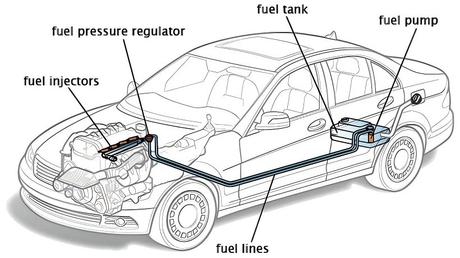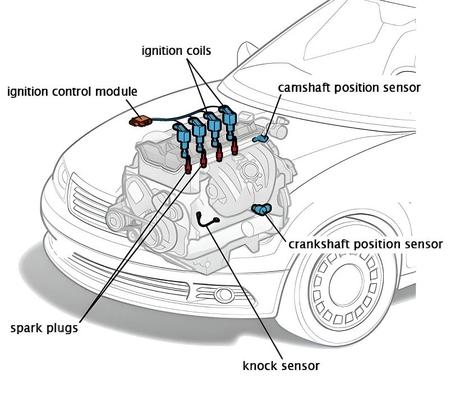The Top Reasons Why Your Car Starts but Won't Stay Running and How to Fix Them
Your car is an essential part of your daily routine, and when it starts but won't stay running, it can be frustrating and even dangerous. There are several reasons why this might be happening, but don't worry, we've got you covered. In this article, we'll explore the top reasons why your car starts but won't stay running, and more importantly, provide you with practical solutions to fix them. From faulty sensors to a bad fuel pump, we'll break down each issue and give you the tools to diagnose and repair your car. Whether you're a seasoned mechanic or a new driver, this guide is a must-read for anyone looking to keep their car in top shape. So, let's dive in and discover why your car won't stay running, and how to fix it!Common reasons why your car starts but won't stay running
There are several reasons why your car may start but won't stay running. One of the most common reasons is a problem with the fuel system. If your car is not getting enough fuel or if the fuel is not being delivered properly, it will not stay running. Another reason could be an issue with the ignition system. If the spark plugs are not firing properly, the engine won't run. Electrical problems can also be a culprit, such as a faulty battery or alternator. Finally, mechanical issues such as a broken timing belt or a seized engine can cause your car to start but won't stay running.The fuel system and its components
The fuel system is responsible for delivering fuel to the engine, and if it is not functioning correctly, your car won't stay running. The fuel pump, fuel filter, and fuel injectors are all essential components of the fuel system. If any of these components are faulty, it can cause problems with fuel delivery.
The fuel pump is responsible for pumping fuel from the gas tank to the engine. If it is not functioning correctly, it can cause your car to start but won't stay running. A common sign of a bad fuel pump is a whining noise coming from the gas tank. If you hear this noise, it's time to have your fuel pump checked.
The fuel filter is responsible for removing impurities from the fuel before it reaches the engine. Over time, the filter can become clogged, which can cause fuel delivery issues. A clogged fuel filter can cause your car to start but won't stay running. To avoid this issue, it's important to have your fuel filter changed regularly.
The fuel injectors are responsible for delivering fuel to the engine. If they are not functioning correctly, it can cause your car to start but won't stay running. A common sign of a bad fuel injector is poor fuel economy. If you notice that your car is using more gas than usual, it's time to have your fuel injectors checked.
The ignition system and its components
The ignition system is responsible for starting the engine and keeping it running. It includes the battery, starter, alternator, spark plugs, and ignition coil. If any of these components are faulty, it can cause problems with the ignition system, which can cause your car to start but won't stay running.
The battery is responsible for providing the initial power to the starter. If it is weak or dead, it can cause your car to start but won't stay running. A common sign of a weak battery is slow cranking when starting your car. If you notice this issue, it's time to have your battery checked.
The starter is responsible for turning the engine over. If it is not functioning correctly, it can cause your car to start but won't stay running. A common sign of a bad starter is a clicking noise when you turn the key. If you hear this noise, it's time to have your starter checked.
The alternator is responsible for recharging the battery and powering the electrical system when the engine is running. If it is not functioning correctly, it can cause your car to start but won't stay running. A common sign of a bad alternator is a dead battery, dim headlights, and a warning light on your dashboard. If you notice any of these issues, it's time to have your alternator checked.
The spark plugs are responsible for igniting the fuel in the engine. If they are not firing properly, it can cause your car to start but won't stay running. A common sign of bad spark plugs is poor fuel economy and a rough idle. If you notice these issues, it's time to have your spark plugs checked.
The ignition coil is responsible for providing power to the spark plugs. If it is not functioning correctly, it can cause your car to start but won't stay running. A common sign of a bad ignition coil is a misfiring engine. If you notice this issue, it's time to have your ignition coil checked.
The electrical system and its components
The electrical system is responsible for powering the lights, radio, and other electrical components in your car. If there is an issue with the electrical system, it can cause your car to start but won't stay running. The battery and alternator are essential components of the electrical system, but there are other components that can cause problems as well.The starter solenoid is responsible for sending power to the starter when you turn the key. If it is not functioning correctly, it can cause your car to start but won't stay running. A common sign of a bad starter solenoid is a clicking noise when you turn the key. If you hear this noise, it's time to have your starter solenoid checked.
The ignition switch is responsible for sending power to the starter and other components in the electrical system. If it is not functioning correctly, it can cause your car to start but won't stay running. A common sign of a bad ignition switch is a dead battery or a car that won't start. If you notice these issues, it's time to have your ignition switch checked.
The mechanical system and its components
The mechanical system is responsible for the physical operation of the engine. If there is an issue with the mechanical system, it can cause your car to start but won't stay running. The timing belt and engine are essential components of the mechanical system, but there are other components that can cause problems as well.The timing belt is responsible for keeping the engine's valves and pistons in sync. If it breaks, it can cause significant engine damage, including a seized engine. A common sign of a bad timing belt is a ticking noise coming from the engine. If you hear this noise, it's time to have your timing belt checked.
The engine is responsible for converting fuel into motion. If it is not functioning correctly, it can cause your car to start but won't stay running. A common sign of a bad engine is smoke coming from the exhaust. If you notice this issue, it's time to have your engine checked.
How to diagnose the problem
Diagnosing the problem with your car can be challenging, especially if you're not a mechanic. However, there are several steps you can take to diagnose the problem. The first step is to check the battery. Make sure it is fully charged and has no visible damage. If the battery is weak or dead, it can cause your car to start but won't stay running.The second step is to check the fuel system. Make sure there is enough fuel in the tank and that the fuel pump is functioning correctly. If the fuel pump is not working, it can cause your car to start but won't stay running.
The third step is to check the ignition system. Make sure the spark plugs are firing correctly and that the ignition coil is functioning correctly. If either of these components is faulty, it can cause your car to start but won't stay running.
The fourth step is to check the mechanical system. Make sure the timing belt is functioning correctly and that there are no significant engine issues. If the timing belt is broken or the engine is damaged, it can cause your car to start but won't stay running.
Tips for fixing the problem
Fixing the problem with your car will depend on the specific issue. However, there are some general tips to keep in mind.First, make sure you have the necessary tools and knowledge to fix the problem. If you're not comfortable working on your car, it's best to take it to a professional.
Second, follow the manufacturer's instructions for fixing the problem. Make sure you have the correct parts and that you're following the correct procedures.>
Third, take your time and be patient. Fixing a car problem can be challenging, but it's important to take your time and not rush the process.
